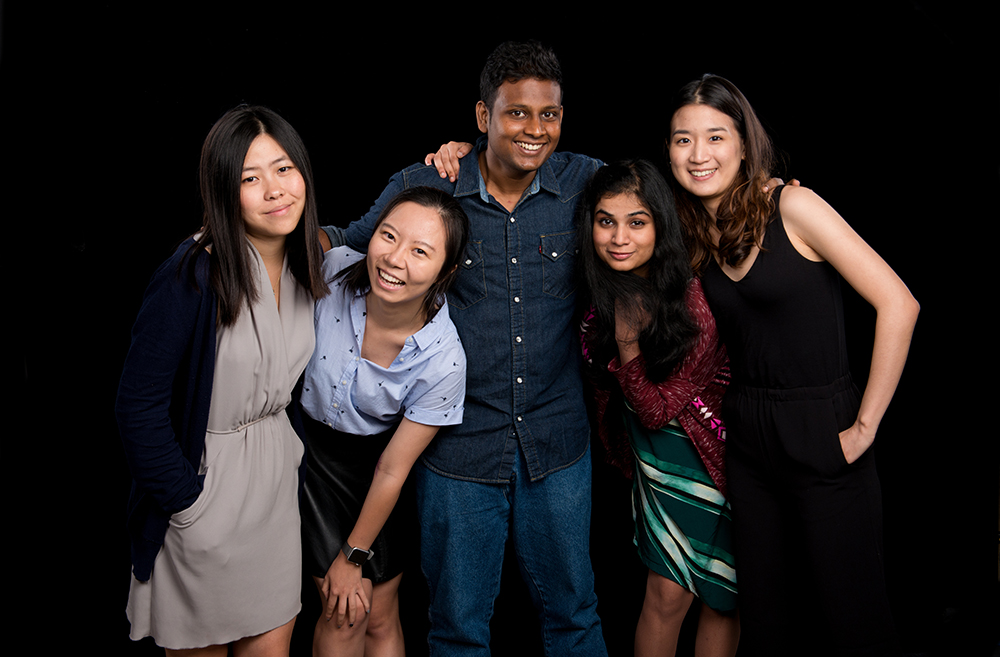At AOL, Cornell Tech Interns Build Their Ideas from the Ground Up
Categories

Executing an idea while collaborating with a team of people is one thing; prototyping a new technology from start to finish and presenting it to a group of experienced professionals — that is something else entirely.
But this process is propelling Cornell Tech’s student interns at big companies like AOL.
Two years ago, the company decided to add another internship specifically within its Area 51 division, an incubator within AOL.
Area 51, a reference to the top secret government compound, is the division of the company that researches cutting-edge ways AOL can grow in the near future. With its new internship program, the company decided to partner exclusively with Cornell Tech students.
Bhagyasri Canumalla ’17, a second-year Connective Media graduate student at the Jacobs Technion-Cornell Institute, interviewed for one of these Area 51 internships. When she was offered a position, she knew immediately it was for her.
“In previous jobs, I’d always be pushed into development positions,” said Canumalla. “But with this internship, I knew I would have hands-on training with project management and leadership skills, which is something I needed to further my career.”
Interns at Area 51 are exposed to a range of AOL’s media technologies — such as virtual reality, augmented reality, and chatbots — and are encouraged to brainstorm ways they could be applied differently. At the start of their internships, the students pitch ideas that AOL’s Area 51 researchers aren’t already exploring.
“It’s really challenging to think of a new idea that AOL staff members hadn’t thought of before,” said Osnat Benari, senior director of research and development, and Head of Area 51. “After pitching over 20 ideas, though, my team found an idea that AOL hadn’t thought of yet, tweaked it slightly, and then set to work.”
As the interns developed their products, AOL’s CTO William Pence would check in periodically to give the students feedback on product direction and make sure they were considering efficient ways to build. The interns also had to keep in mind that they were developing something for a diverse user base. “From AOL’s perspective, we work with the biggest agencies in the world, and we have to be able to cater to their requirements,” explained Benari.

For student interns, that meant thinking about a product from all angles—and explaining why it was necessary to build it in the first place. “In many cases, these are new technologies that haven’t been built before,” said Benari. “It’s hard to think of a user when it’s so new, so interns have to be able to pinpoint a target.”
As Canumalla worked, she pushed herself to think more broadly. “There are so many types of people out there and so many ideas you can come up with if you can think from their perspective,” she said. “It was a revelation to realize how many different markets there are.”
While working under Benari, Canumalla also learned how to pitch ideas, honed her project management skills, and developed new confidence in her work. “In my previous jobs, when I used to take part in conversations and wanted to put an idea forward, I didn’t necessarily do it in the most confident way,” said Canumalla. “Osnat helped me become more assertive.”
Canumalla’s newfound confidence in her ideas inspired her to create and lead her own project from start to finish. “Not only were we allowed to come up with a product idea, but we were allowed to build it all by ourselves,” said Canumalla. “That was a huge confidence-booster because we weren’t so scared to do it alone—we learned how much we could accomplish in a short span of time.”
Since completing the internship, Canumalla has found that her thinking is much more user-oriented. “I think first about what I would want, and then how it might work for others,” she said.
Being able to experiment with different devices also gave her a number of new ideas she wouldn’t have considered before. “I’m happy I was introduced to all these new technologies and was able to play around with them—there was never a dull moment during the internship.”
This is exactly the type of experience AOL is hoping to foster with the Cornell Tech students, and it seems to be working: currently, there’s a pending patent on the prototype that was built during the summer.
According to Benari, this success only came because the interns were having a good time: “I tell them to have fun, and not from an internship-only perspective. If you understand that tech is fun, regardless of the difficulties in building a working prototype or worrying whether it’s possible, you will give your user a great product.”





